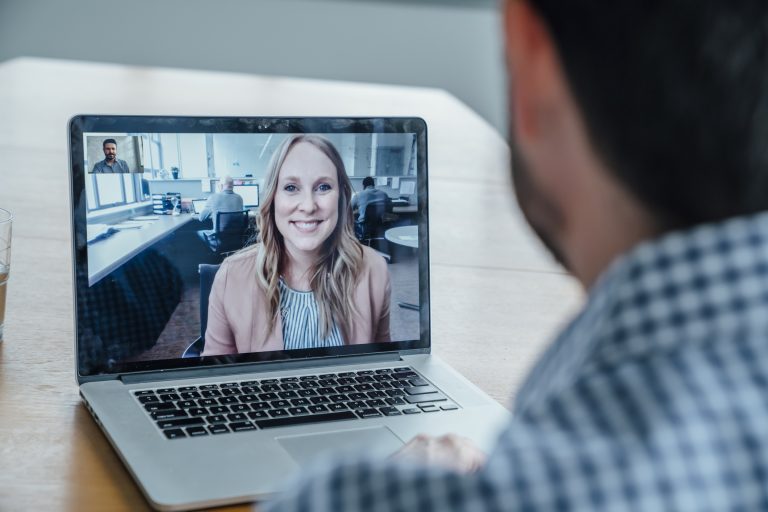
There is little doubt that the field of genetic counseling has undergone monumental changes in the past 10 or 20 years as technology has ramped up the information available from genetic testing from one or two genes per test to panels that often contain hundreds of genes.
Propelled by changes in cost and scale of genetic sequencing that began a dozen years ago with the advent of next-generation sequencing, the role of certified genetic counselors has both changed and broadened as genetic analysis has become a more common aspect of clinical care.
“Genetic counselors 20 years ago were primarily in patient-facing roles; meeting with patients face-to-face for prenatal genetic counseling, pediatric genetic counseling, or some of the more common mendelian conditions like Huntington’s disease, which is where a lot of genetic counseling was born,” said Amy Sturm, CGC, a professor and genetic counselor at Geisinger Health and current president of the National Society for Genetic Counselors (NSGC).
“Now it has expanded dramatically. Genetic counselors have, to a certain degree, moved away from patient-facing clinical roles. Genetic testing labs are big employers of genetic counselors now, some work in genetic research, public health, or marketing, or business development at different tech companies. There are some genetic counselors who don’t provide any patient care at all,” Sturm added.
While it might seem antithetical, many of those CGCs who aren’t delivering direct patient care, are also those who are driving a transformation in the model of how genetic counseling is provided today. This will enable these services to be scaled in the coming years, as clinicians begin to understand the value of genetic data in providing patient care, and as direct-to-consumer and consumer initiated genetic testing services move into the mainstream.
Just ten years ago, with virtually all genetic counseling occurring in face-to-face settings, the emphasis was on using the limited counseling resources on those cases that were obviously in need of intervention, for people already diagnosed—or suspected they’d be diagnosed—with a genetic disease.
“Because costs are falling, we don’t need to save those precious resources for those people who have the most obvious personal and family history and are already well along that path of understanding they are at risk for something by the time genetics come in,” said Lauren Ryan, head of clinical services at population genomics company Color. “We are moving it way upstream and using genetic testing as a tool to assess entire populations and pick out the people who believe they are perfectly healthy, but they actually have this risk. We can use their genetic information to send them down a different path with their medical care, such that they are able to lower their chances and perhaps prevent bad health outcomes.”
Is there a genetic counselor shortage?
A common mantra in the precision medicine community, and often repeated in the mainstream press, is that we suffer from a shortage of certified genetic counselors in the U.S. But don’t suggest that to Erica Ramos, director of clinical product development for Geisinger National Precision Health. Ramos points out that there are currently more than 5,000 certified genetic counselors (CGCs) in the U.S. today, up from about 2,500 ten years ago. With more training programs set to come online to train CGCs and as existing ones increase enrollment in their programs, NSGC predicts the number will double again to more than 10,000 in the next ten years.
While wait times to see a CGC in person at some clinics and academic medical are often months, that does not tell the entire picture of access, Ramos noted, as this is not the only model for providing these services.
“At the National Society of Genetic Counselors, we look a lot at how well patients are being served and how quickly they are being served,” Ramos, who is also past president of NSGC, said. “And when we asked our counselors, many of them are able to see patients fairly quickly.”
Sturm also thinks the perception of a shortage oversimplifies the issue.
“There very well may be shortages in certain parts of the country. I grew up in rural Ohio. Do you think there are genetic counselors right there in Eastern Ohio, in Appalachia? No there aren’t,” Sturm noted. “That being said, our profession has really diligently been working to expand access. You see so many of these telephone and genetic companies that have worked to get genetic counselors hired across the country for service to be provided by phone to anyone, anywhere across the United States.
“So [this perception of a shortage] is frustrating because it boils down to access. Can people meet with a genetic counselor if they want to? I think the answer to that is yes.”
Technology to expand access
It’s unlikely you would hear her say it, but Elissa Levin, senior director of clinical affairs and policy at population genomics company Helix, may well have been one of the first people to envision a technology enabled future for providing genetic counseling services. As a graduate student studying genetic counseling in the late 1990s, Levin proposed a thesis that genetic counselors should try to leverage the Internet, which was still in its infancy, to create more uniform information and increase access to genetic information and genetic services.
“I was summarily told you need to see people in person,” Levin said.
Fast forward to today and Levin is one of the chief architects of Helix’s effort to leverage technology to provide faster and broader availability of genetic counseling services as it supports its client health systems that are tackling large-scale patient sequencing programs to build their population health models.
“Before I came to Helix, I was working on a digital genetic counseling interface. This is one of the areas that is incredibly exciting,” Levin noted. “I’ve spent the last five to ten years of my life working with interaction designers around having deep qualitative understanding of people’s experiences with learning about, and using, genetic testing information. Learning what we as genetic counselors do well, what we don’t do well, and where we can use technology to enhance and complement what we do in more high-touch personal interactions.”
Likewise, at Color, company Founder and CEO Othman Laraki—who founded the company after a stint in the software industry (he led the team at Google that created the Chrome browser)— sees software and technology solutions to increase genetic counseling access as not only inevitable, but also necessary.
“Oftentimes when we start talking to countrywide programs, they may have five or so genetic counselors in the entire country when they start thinking about this,” he noted. “When it comes to serving a million people—even having access to 50 or 100 genetic counselors—one of the things that has evolved is using software to achieve [the needed] scale.”
Like other companies providing telephonic counseling, Color has leveraged technology to automate many of the time-consuming, administrative tasks the have typically consumed much of a genetic counselor’s day-to-day work such as appointment scheduling, health questionnaires, and billing and reimbursement, among others. A study showed these changes allowed the company’s counselors to provide service to five times as many people, compared to 50 genetic counselors working in Michigan who were practicing under a traditional model.
Ryan said these changes had benefits to both patients and the staff of counselors at Color. “The patients are getting very quick appointments, at their convenience, and also it makes our quality of life better as a team, because we get to actually practice at the top of our scope and use our skills to meet the patient where they are without losing the human aspect.”
Retaining that human touch is an important part of people accepting receiving genetic counseling services via this method. Scott Weissman, CGC, lead cancer and proactive health services with Genome Medical, said this is not surprising as many of these methods of communicating are now mainstream.
“I believe people are comfortable communicating via video with things like Skype and Facetime—it is becoming a part of daily living,” Weissman said. “Having experienced that through friends and work, the next natural phase is to do this for health care, especially in situations where you are a provider that is just talking to somebody. You don’t need that physical medical exam for most genetic consultations. It lends itself well for this.”
Educating doctors and consumers
While training programs look to increase the number of CGCs available to provide services, and technology companies look to amplify their productivity, there is a pressing need to better educate doctors on the availability of genetic testing and the value genetic counselors provide. Likewise, more education of the general populace is needed as more people purchase consumer-focused genetic tests.
“We have discussions about this all the time and there is a lot of work to do. How do we increase genetic literacy? How do we increase that among healthcare providers and among the general public? How do you start tapping into the school age education channels just to create the awareness and the lexicon to be able to prepare people to know these types of tests exist and to understand what genetics can and can’t do?” asked Levin. “We need to demystify it, so it doesn’t have to be scary.”
When it comes to educating physicians and other clinicians, Ramos said it is important to have clearly defined roles to help increase physician engagement in genetic testing and counseling. “Many programs have spent years trying to make clinicians into geneticists, but that is not what we need them to be,” she noted. “We need clinicians to be the ones helping to guide their patients through the next steps once they do get a positive test result. Helping physicians to understand the benefit of genetics and to really see it take hold in their own practices is the big thing.”
Providing physician education may be the easier part in the coming years, though. The increasingly popularity of consumer focused genetic testing products like 23andMe, Ancestry, and a host of others suggest that the market has now moved from early adopters to the mainstream public.
Virtually all the people interviewed for this story see the broad interest in genetic testing, long term, as a good thing that has the ability to better engage people in their health, and potentially improve the health of populations over time.
But this benefit does come with some downsides.
“People do not necessarily understand the test they are ordering. They think they have it covered, based on their symptoms, but it could be something different than they think,” said Weissman. “When the test comes back negative, they think they don’t need to worry about it anymore. That’s a big issue with the consumer-initiated model.”
At Genome Medical, Weissman and others on staff serve as counseling support for consumer-initiated testing companies to help them collect pre-test information that could be used to steer the consumer to a more appropriate test, or even to clinical testing if their family and medical history suggest that.
Unfortunately, whether a consumer chooses to avail themselves of the counseling services is completely up to them—consumers aren’t mandated to have counseling as a condition of ordering the test.
But even with this gap today, most are optimistic about the opportunity provided by more consumers getting their genomes or exomes sequenced, and the role genetic counselors can play.
“The genetic counseling community can serve as the bridge between all this exciting technology and developments that are happening and then be the boots on the ground of how do you get this implemented into the clinic, to help navigate how to work with a patient that has positive DTC result, and then how to take care of them moving forward,” Ramos concluded.











